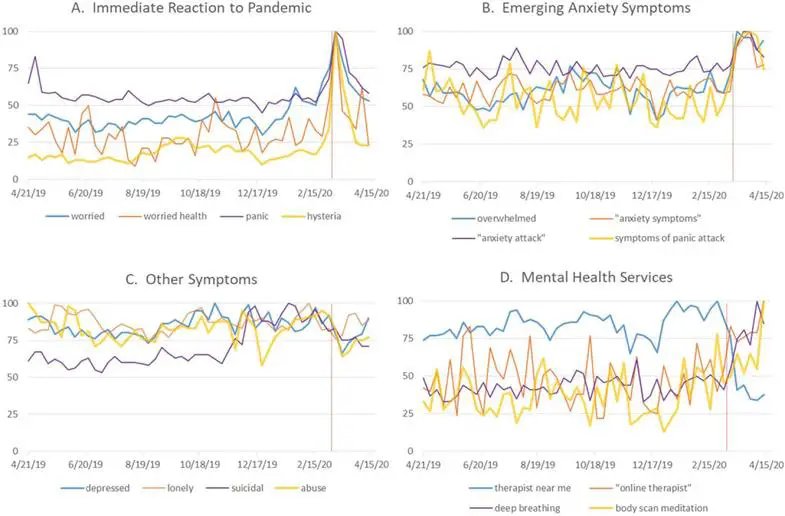A Google Trend analysis by Tulane University reveals a major panic attack issue which the researchers are terming as a “mental health tsunami” related to unanticipated death, burnout and unemployment during COVID-19.
The researchers examined the Google Trends to analyze an extensive list of mental health-related terms that people searched for before and after the World Health Organization (WHO) issued a pandemic declaration on March 11, 2020. The trend shows a major jump in searches related to anxiety, panic attacks and treatments for panic attacks, especially remote and self-care techniques, in the weeks following the pandemic declaration.
Panic attacks are characterized by an intense fear and sense of feeling overwhelmed, according to the National Institutes of Mental Health. During a panic attack, people may have a rapid heartbeat, sweat profusely, shake or experience shortness of breath.
“Our analyses from shortly after the pandemic declaration are the tip of the iceberg,” Hoerger said. “Over time, we should begin to see a greater decline in societal mental health. This will likely include more depression, PTSD, community violence, suicide and complex bereavement. For each person that dies of COVID, approximately nine close family members are affected, and people will carry that grief for a long time,” says Michael Hoerger, an assistant professor of psychology.

“Although by no means a ‘window into the soul,’ people’s search terms reflect relatively uncensored desires for information and thus lack many of the biases of traditional self-report surveys,” the study says.
The research does not point out to any increase in searches for depression, loneliness, abuse and suicide. But the researchers cautioned that their findings do not necessarily mean that people aren’t experiencing these mental health issues.
